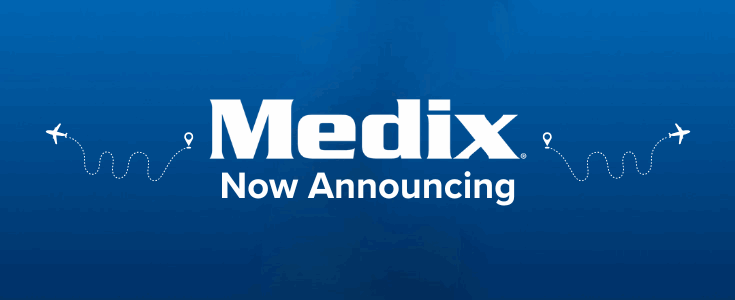Local vs. Travel Allied Staffing: How to Know Which Strategy to Use

Healthcare leaders are continually asked to perform multi-tasking miracles. They must provide the guidance that ensures their organization operates smoothly and provides exceptional patient care while building a staffing strategy and the skilled teams that make achieving those goals realistic. That’s a tough ask.
Staffing alone is challenging enough: Balancing immediate demands with long-term organizational stability is like walking a tightrope in a thunderstorm. Healthcare demand fluctuates, so relying on a single, inflexible hiring strategy to satisfy staffing needs is a risky step. That leaves organizations vulnerable to talent burnout, budget overruns, or service gaps.
How can you make sure your hiring is on the right path? An optimal allied staffing strategy is not an either-or decision. It’s ideally a combination of using local talent and travel allied staffing to meet your varying workforce needs. Which one is best for your organization? Both. Let us explain.
Local vs. Travel: How Do You Define Them?
What do we mean when we say “local” or “travel” allied staffing? The names give them away, but let’s be sure we’re on the same page.
Local: You could call these allied health professionals your neighbors. They are in your immediate geographic market and are usually most interested in long-term stability by way of full-time, part-time, or extended contract-to-hire roles. With a goal to immerse themselves in an employer’s culture and their community, they could be your answer for years to come.
Travel: The nomads of the healthcare industry, travel allied talent use advanced skills and deep experience to land short-term assignments outside of their home market. Many travel roles are around 13 weeks — and can be as short as 8 or as long as 26. Travel allied talent are ideal for filling urgent, specialized, or temporary gaps. Healthcare organizations can find them through a national travel allied staffing agency like Medix.
Benefits of Local and Travel Talent
Whether it’s local or travel allied healthcare talent, you’re getting a skilled professional who can do the job you hired them for. But — there’s always a but — local and travel talent have unique benefits you’ll want to keep in mind. Here’s a quick rundown.
Benefits of Local Talent
Local allied talent nurture long-term success for your organization and themselves with stability and deep integration that temporary solutions cannot replicate.
- Stability and loyalty: Since they live in or near the communities where they work, local talent are often in it for the long haul. They are the backbone of your team. This increases your retention rates, which lowers turnover costs. Local talent see their role as a career, not a temporary stop on their professional journey.
- Organizational fit: Local talent offer your best chance to quickly find a perfect fit with your team’s culture in the long term. With an eye on growth and stability, they embrace your organization’s mission, values, and local patient demographics. They quickly integrate into your existing team and become culture champions.
- Cost efficiency in the long term: Yes, hiring local often takes longer, but the blended hourly rates of local talent are lower than those for travelers. This is a critical step in reducing operational budget strains over years.
Benefits of Travel Talent
- Quick credentialing: Since you’re partnering with a specialized travel allied staffing agency, the complex, time-consuming onboarding process of licensing and credentialing is managed off-site and upfront. For travel talent, this means professionals can be rapidly deployed to your facility. This eliminates onboarding delays and allows you to immediately deploy certified talent into vital roles, ensuring operational continuity and high-quality patient care.
- Skilled talent for difficult roles or locations: With experience in a range of settings and roles, travel talent bring specialized skills and knowledge that local talent might not have been exposed to yet. This helps organizations fill their team’s skills gaps. Hiring travel talent is a solution for organizations in difficult locations that might struggle to find top tier talent in their local market.
- Nationwide reach: You might be on the West Coast, but the ideal person for that hard-to-fill opening might be living in Florida. Using travel allied staffing gives you a chance to hire the perfect person from anywhere in the country. This is a big advantage when you face sudden seasonal surges or if you’re launching a new unit or location.
When to Use Local Talent — When to Use Travel Talent
It’s impossible to predict every staffing scenario in healthcare, but it’s entirely possible to have a general idea about when to use local talent and when to use travel talent. Three primary factors drive each decision: urgency, duration, and specialization. Here are a few common staffing situations and the talent you should consider for each.
Scenario 1: Stabilizing Your Core Team and Building Your Bench
Use local talent (direct hire or contract-to-hire)
This is your team’s foundation. When the goal is to reduce long-term dependency on contract staff, improve team cohesion, and invest in employees who will stay for years, you must focus on local talent sources. Using a contract-to-hire model for local candidates allows you to test for cultural fit before committing to a permanent hire — we call it “try before you buy” — reducing the risk of bad hires while building your talent pipeline.
Scenario 2: Immediate Vacancy for Critical Role
Use travel allied staffing (prioritizing speed and mitigating burnout risk for remaining core staff)
In the event of an immediate, high-priority gap — such as unexpected FMLA coverage, an immediate resignation, or a sudden, specialized need (like an MRI technician opening) — speed to fill is your first priority. Travel allied staffing is the fastest way to deploy a fully credentialed professional. Your primary goal here is to mitigate burnout risk for your existing staff by preventing them from having to absorb an unsustainable workload.
Scenario 3: Seasonal Surges or Project-Based Demand
Use a hybrid approach (local contract staff for anticipated needs; travelers for unexpected spikes)
Healthcare organizations frequently experience predictable, yet temporary, spikes in demand (e.g., winter flu season, EHR migration efforts, or a massive equipment overhaul). For anticipated surges, utilize local contract talent on extended assignments to help cover the consistent increase in workload. If the spike exceeds expectations or if specialized skills are required, rapidly deploy travel allied staffing as the final, flexible workforce component. This protects your permanent team from cyclical overwork and ensures you maintain high-quality care.
Scenario 4: Filling Entry-/Mid-Level Roles in a Competitive Market With Long-Term Budget Focus
Use local talent (focus on recruitment marketing and long-term cost control)
For roles that are critical but not hyper-specialized (like entry-level lab assistants or patient care technicians), investing time and resources in local recruitment provides the best long-term budget control. This strategy focuses on targeted recruitment marketing and building community ties to ensure a continuous stream of candidates whose total compensation costs are far more sustainable than those of travelers.
Scenario 5: New Unit Launch or Expansion Requiring Immediate, Temporary Full-Team Build-out
Use a hybrid approach (travelers for core speed and guaranteed coverage; local for specialized, hard-to-find, or permanent leadership roles)
Launching a new unit is ideal for a strategic hybrid model. Use travelers for core coverage and guaranteed immediate staffing levels. They act as your fully competent stop-gap workforce. At the same time, focus your local recruitment efforts on permanent leadership and highly specialized roles that require your organization to make long-term resource commitments. This dual strategy ensures patient readiness from day one as you build a stable, long-term staff.
How to Build a Hybrid Team of Local Plus Travel Allied Talent
The most resilient healthcare organizations don’t put all their eggs in either the local or travel baskets — they master how to use both. That’s because building a truly flexible team requires treating these two talent pools not as competing strategies but as complementary layers of one truly sound staffing strategy.
Develop Your Dual Strategy
Your local talent pool is the stable core of your team while a national travel pool is the flexible option that enables you to respond to fluctuations in demand.
- The local foundation: Your strategy here should focus on fruitful retention programs and the effective use of a contract-to-hire model for local candidates. With contract-to-hire, you reduce the risk of long-term hires, ensuring that any new permanent team member has already proven their clinical skill and cultural fit. This stabilizes the core staff and maximizes your long-term cost-efficiency while minimizing your need for travel talent over time.
- The travel flex layer: For maximum efficiency, build a single, dependable relationship with a national travel allied staffing partner. This guarantees on-demand access to a pre-vetted talent pool, ensures standardized compliance across all assignments (a major administrative win), and provides predictable deployment timelines for temporary spikes. Leveraging one partner streamlines vendor management and minimizes compliance gaps, directly reducing administrative overhead.
- The Medix consultation: A big challenge for many healthcare leaders is accurately assessing a need before choosing a staffing solution. This is where the value of a consultative partner becomes clear. Medix doesn’t offer a one-size-fits-all solution. We tailor our strategy to your unique needs before recommending a solution, ensuring the right fit (local or travel) every single time.
Your Source for Local and Travel Allied Staffing — Medix
Building a stronger team with local talent as your foundation and travel talent for maximum flexibility and coverage requires a clear strategy and the in-house resources to act on it. As your healthcare staffing partner, Medix helps you deliver on all fronts.
Medix is a total workforce solutions provider, moving beyond simple staffing and serving as a consultative extension of your HR and leadership teams. We are a strategic partner dedicated to helping you optimize your talent mix and build a more efficient, high-performing allied workforce.
We draw from local and national allied pools — more than 3 million candidates nationwide — addressing any staffing challenge regardless of location or specialty. Our Joint Commission certification and rigorous credentialing process ensure every professional — local or traveler — meets the highest safety and care standards. We take on the administrative burden of compliance, mitigating risk and enabling you to focus entirely on patient care.
Contact us today so we can get started on your allied staffing strategy and strike a perfect balance between speed, cost, and quality.

Work with a Trusted Healthcare and Life Sciences Staffing Partner
Connect with Medix to get the expertise and resources you need to succeed.




